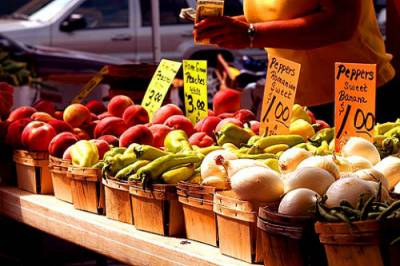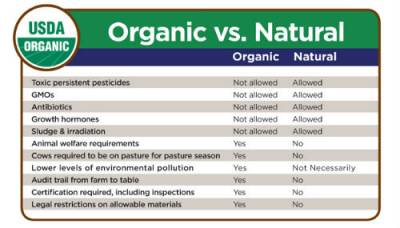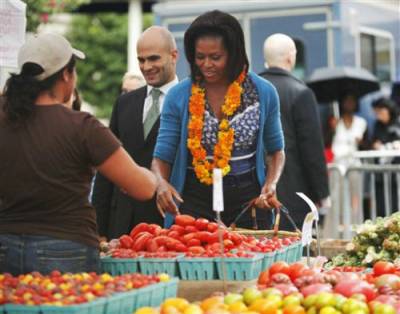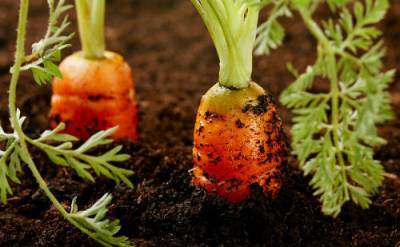
What did you have for dinner last night?
What fresh fruits and vegetables are in your home right now?
Today, there are more and more factors to consider when deciding where to purchase groceries. The designated shopper in a home may generate several lists, sending them all over their city making various stops in order to stock their home with what is needed. Consumers are more conscious about the food they eat and more aware of the ingredients in their favorite products.
Conversations today are dominated by the words organic, gluten-free, high fructose corn syrup, free range, GMO, and all natural. There are thin lines dividing the FDA and USDA definitions for each food category, it’s honestly quite confusing that you can have free-range, all natural, organic, GMO free chicken. Far too often shoppers assume natural means organic, or that organic means free-range, but they each have their own guidelines and regulations (yes, your grocery list may have just become more interesting).

The “organic movement” is not necessarily new. In the early 1900s, farmers became concerned about the popularity of synthetic fertilizers, and began forming organizations amongst themselves that were designed to keep the integrity of their industry. Over the years the farming industry has split into many different directions. Some farmers produce food solely for animal consumption, others use their land to grow as much food as they can for humans, where other farmers are not concerned about the quantity of their crops, but are focused on the quality of what they sell. The point is, food just is not what it used to be.

Consumers should be concerned about the chemical sprays that keep the pests away, as well as the fertilizer and soil where the produce grows. The soil is just as important as the water and the sunlight. Once upon a time our soils were rich in vitamins and nutrients, but the more we overuse the grounds and expose the land to man-made chemicals and harsh environmental conditions (which we have also created), our soil is being depleted. The soil is no longer feeding the crops the way it used to, causing the produce not to be as rich in vitamins and nutrients as they used to be. It could very well look like broccoli and taste like broccoli, but the positive benefits are slowly disappearing.

It’s easy to answer questions like, “Do you use pesticides?” but the answer to “Is your soil rich in minerals or iodine deficient?” could be more complicated. The best offense (or defense) we all have is to incorporate the right supplements into our daily routines. There are pill and liquid supplements for iron, iodine, calcium, and all other minerals that were once naturally plentiful in our foods. Be sure the supplements you choose are naturally organic otherwise you could end up right back where you started.
It’s easier to ask questions at a farmer’s market. Do you buy your produce at a market or a grocery store?
Are you committed to natural and organic products?





